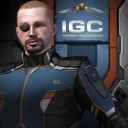One of the major pieces of this year's EVE Fanfest was the introduction of stage two of Project Discovery. Stage one concluded during 2016, with EVE Online players contributing to the development of the Cell Atlas in association with Massively Multiplayer Online Science (MMOS) and the Human Protein Atlas. Citizen science (a form of crowdsourcing) has been used for multiple projects, but often suffers from low retention rates of participants- but capsuleers took on the challenge of breaking that tradition!
In conjunction with Michel Mayor, (honorary professor from the University of Geneva, winner of the prestigious 2017 Wolf Prize for Physics, and discoverer of the first exoplanet) and the University of Reykjavik, stage two of Project Discovery will allow EVE players to help in the hunt for planets outside of our solar system.
Professor Michel Mayor took to the stage at this year's Fanfest to give an overview of the history, and provides an interesting look into the science behind the ongoing search for exoplanets
Following on from the fascinating technical overview of the science behind exo-planets, CCP Burger takes to the stage to give an overview of Project Discovery over the last year, and a look into stage two of the project.
CCP Burger looked at some of the results and explained that, thanks to the efforts of EVE Online players, a consensus on the sample sets provided were reached much faster than anticipated. EVE players completed over 28 million classifications- this equates to 169 (Swedish) working years, assuming each classification takes approximately 30 seconds to complete. The entire original data set was completed in 3 weeks rather than the expected 3 months! The very first results of all this work are due to be published in Science Magazine as part of an updated Human Cell Atlas. A follow-up challenge is set to launch soon, where the HPA team will release a package of images for users to work with- and, of course, there will be leaderboards to climb!
Attila Szantner, co-founder and CEO of MMOS, then took to the stage to talk about the huge team that brought Project Discovery to EVE Online; right from its very start as a company wanting to match Citizen Science with MMO games, all the way to the current day and their continuing relationship with Reykjavik University. Szantner gives thanks to all the people involved, including the players who provided such a huge contribution towards the project.
CCP Burger returns to the stage to talk about stage two of the project, and explains how CCP chose the next research task for Project Discovery- focusing on a project altruistic in nature, thematic to the EVE Universe, a task that can be done within a consistent amount of time, have a certain level of complexity, and with a high volume of tasks. The hunt for exoplanets fits all the criteria CCP was looking for. As CCP Burger said- 'I see you your proteins, and I raise you the Universe!'
While all ranks and Analysis Kredits will be reset once stage two is released, all players' contributions will be archived on an external website detailing the results of stage one of Project Discovery. On the subject of transferring in-game ownership of the project, it was confirmed that CONCORD will take over from the Sisters of EVE as directors of the Exoplanets program - with CONCORD chief scientist Dr Mayor set to being the lead.
CCP Burger then proceeds to demonstrate the prototype interface for stage two of Project Discovery. The process is fairly complicated and detailed, so you can jump to the part of the presentation at 31min and 57seconds. In essence, graphs of light reflection are studied for repeating patterns that might suggest orbits of an object. With around 4000 known exoplanets already out in space, there are still many stars that may still have exoplanets to find.
Project Discovery stage two is currently expected to be released in June, and you can see the full presentation below.











No comments yet